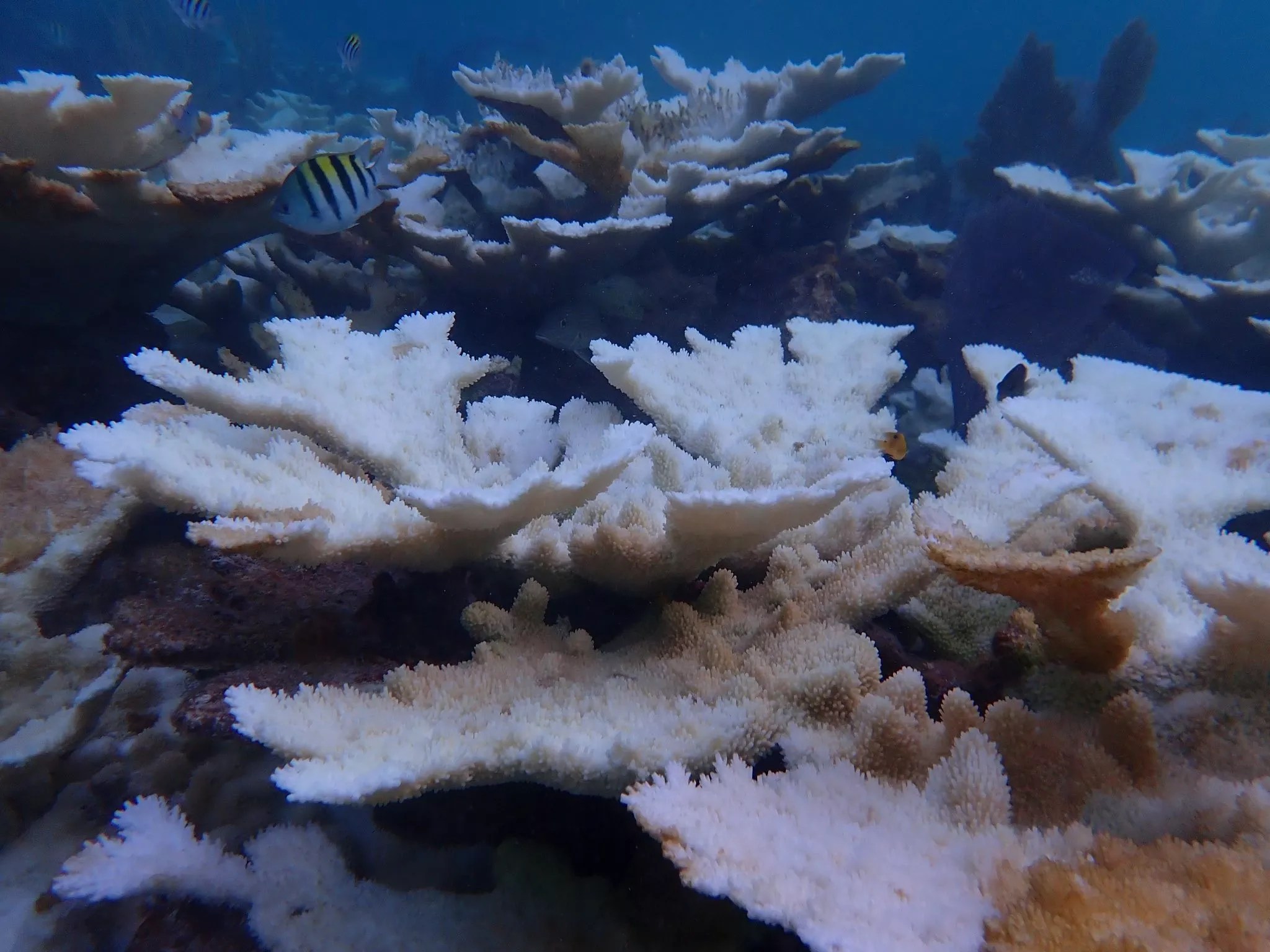
Photo by Katey Lesneski

Audio By Carbonatix
Marine researcher Katey Lesneski first fell in love with Horseshoe Reef off Key Largo in 2014 while working as a divemaster guiding recreational divers to see elkhorn coral – a critically endangered species. One of the National Oceanic and Atmospheric Administration’s seven iconic reefs, the area is known for its uniquely vibrant coral colonies teeming with colorful fish and other marine life.
In recent days, after South Florida’s unprecedented ocean temperatures and excessive heat decimated local reef populations, Lesneski was forced to say goodbye to iconic coral colonies at Horseshoe Reef.
“I was crying for nearly the entire dive because I realized that I would likely never see these hundred-plus-years-old colonies alive again,” Lesneski, a researcher with the Florida Keys National Marine Sanctuary, tells New Times. “This area hosts one of the last few remaining wild elkhorn coral stands in the Keys of a considerable size. Almost every single wild elkhorn had extensive bleaching or was partially or fully dead, and the current forecast for bleaching in this region shows continually elevated temperatures, and this continued bleaching and mortality.”
Record-high heat caused ocean temperatures to spike last month throughout South Florida, where surface water temperatures hit as high as 101 degrees. Water temperatures around the Keys hovered around 90 degrees, leaving fragile coral colonies vulnerable to mortality. Temperature increases trigger bleaching by causing coral to expel algae that lives within its tissue and provide it with food.
Most reefs in the Keys are under the highest stress level, entailing “severe coral bleaching and significant coral death,” according to the National Oceanic and Atmospheric Administration (NOAA) Coral Reef Watch. Lesneski, a monitoring coordinator for NOAA’s Iconic Reefs mission, tells New Times her team is in emergency response mode as the bleaching event continues.
Her team received reports about bleaching in shallow reefs throughout the Keys in mid-July. She says they learned the coral near Horseshoe Reef was already dying by late July. Six divers, including Lesneski, went out to see what was unfolding.
Lesneski says what they encountered was beyond rescue.
“We expected to see bleaching, but the number of corals that were bleached and the number that had already died was shocking when we actually saw it,” she tells New Times. “Coral bleaching does not automatically mean coral death. Corals can recover from bleaching if environmental conditions improve, but this site had already been so hot for a long enough time that corals had already died.”
When she posted pictures on Twitter of the dying elkhorn and staghorn corals to show people the severity of the mass bleaching event, she received comments from climate change deniers who claimed the predicament of the coral colonies was being exaggerated.
#coralbleaching in the #floridakeys. These photos are not edited in any way. I wanted to share what I saw on the reef depicted as it actually looked. Horseshoe Reef, off Key Largo on 7/25/23. Elkhorn and staghorn #coral here and at other sites will experience high mortality. pic.twitter.com/VwMMIkNuge
— Dr. Katey Lesneski PhD (@kclesneski) July 27, 2023
With collaborators from the University of Miami Aircraft Center for Earth Studies, Lesneski and her fellow researchers have collected photographic data from above and below the ocean’s surface to show people before-and-after bleaching photos of the reef.
“This reef and the corals pictured here have endured hundreds and hundreds of years of stressors – hurricanes, disease, and prior bleaching events,” she adds. “What is happening here and on the rest of the reefs in the Keys and the wider Caribbean is coming into focus as an unprecedented event. The loss of reefs means subsequent ecological collapse and severe economic losses.”